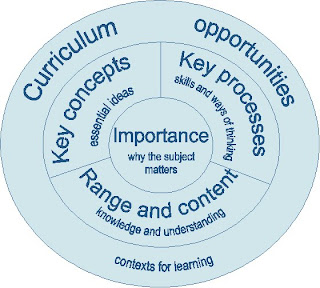The conference will look at
Linking with Africa and the Caribbean, Learning good practise from other countries, Achieving ISA, Developing curriculum projects with a partner school, Leading learning in the International Context and MFL
Reasons for Attending:
To gather information, resources and ideas in order to continue the momentum in the development of Global Citizenship in a more creative curriculum at Woodford Junior School.
Immediate Professional Learning:
Keynote Speaker—Mick Water, Director the Curriculum Authority.
“Putting the World in your Class”
“Develop a modern world class curriculum that will inspire and challenge ALL learners and prepare them for the future”
We live in a changing society where children are growing into a future which is a global economy. Technology can put us in touch with countries all over the world. Our curriculum should challenge the children to learn a Modern Foreign Language as this will be key to their futures.
We must remember that the national curriculum is really only a small part of the curriculum. We should consider the bigger picture of the curriculum.
Curriculum is the entire planned learning experience;
Lessons, events, routines, extended hours
Outside school—clubs, local bands etc
The curriculum is not the timetable. Timetabling is just putting subjects into rooms! Our challenge is to consider “What can subjects do to support the curriculum in our schools” (we should make the most of opportunities to use things which happen everyday in the outside world e.g. the recent eclipse of the moon)
The international curriculum is shrinking distances and includes:
· Reading and studying
· Travel
· Experience
· Understanding
· Relationships
· Empathy
One school puts on a webcam in the canteen at lunch time to watch what is going on around the world!
We must avoid the adjectival curriculum in terms of international work, e.g. shaking / filling a tin for charity without knowing why and for what purpose.
A new curriculum is all about rethinking subjects to ensure that we “Develop a modern world class curriculum that will inspire and challenge ALL learners and prepare them for the future”
The Global Dimension includes:
Culture - values, faith, customs
Economy - products, migration, travel
Governance - freedom, rights
Constraint - resources, climate
Conflict - territory, invasion, refuge
Companionship - sport, arts, pastimes
We are challenged to develop an active curriculum not adjectival.
To study is to appreciate
literature, art, folklore, food
television
www
video conferencing
visits
human contacts
Think!
How can all subjects take on the Global dimension?
Earth from the Air (Yann Arthus Bertrand) is a great resource—the photos can be used to stimulate lessons in across the range of subjects—maths / art / literacy / sustainability etc
Bringing the World into your Classroom PowerPoint presentation by Mick Water, Director of the Curriclum Authority
Workshop 1: Radio Waves—Communicating with Schools across the World
Demonstrated the ways in which a partnership of 4/5 schools in UK, France, Germany and Crete collaboratively use an online radio station to share children’s work. Each school uploads images / text and sound files to their joint web-site along with an English translation. OCEAN on Radio Waves. As part of Comenius, joint projects have included logo competitions; language lab (common phrases) radio plays; school information; Head teacher messages; D&T projects; Science water work; traditional tales; performance poetry; sharing assembly material etc
Project meetings involved planning and evaluation.
Comenius is about;
Sharing curriculum work
A chance to visit foreign schools (teachers and pupils)
Enriching children’s work by comparing ‘themed’ work.
Workshop 2: Fair Trade French
This session showed how French can be taught through other subjects. Simple ideas and all about immersing the children in language: - games, practise.
CADE have produced a pack on bananas which is based of the fair Trade banana pack and has been produced by and AST in Cornwall. The pack will be available later this year though we may get access before as I spoke to the AST (he teaches Rhiannon French).
Workshop 3: Linking with European countries by setting up a Comenius Project
Not as inspiring as the other sessions. However did go through the eTwinning process.
Comenius is about a multi-lateral project. When looking for partner schools aim for 5 /6.
Comenius allows opportunities for staff travel / pupil exchange.
Adhere to deadlines for applications and funding
Follow up actions:
· Challenges for us at Woodford—can we “Develop a modern world class curriculum that will inspire and challenge ALL learners and prepare them for the future”
· Can we embrace the international dimension?
· Sign up to eTwinning
· Continue to develop our links with NZ / pod casting and Blogs etc
· Complete intermediate ISA
· Apply for Full ISA for 2008
· Maintain links with Joe Monks re: MFL ideas / courses etc
· Think about how we might develop / apply for a Comenius project








